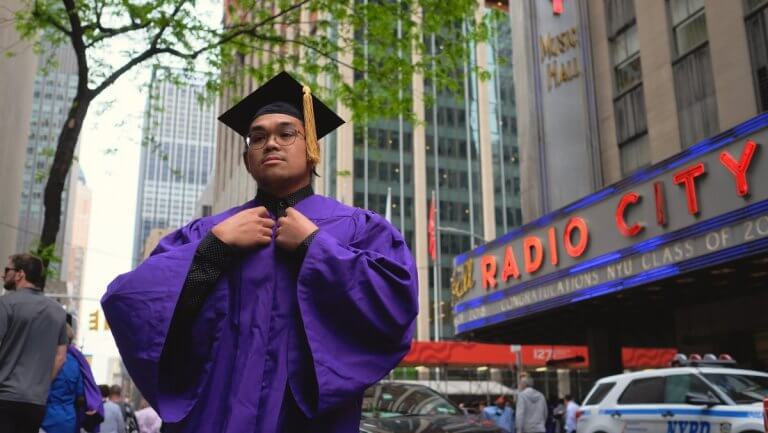
Three words define the job landscape for international MBA holders from US universities today: “US Workers Only”.
The Wall Street Journal reported a 19 percent increase in the number of jobs postings with such phrases in the first half of 2018, compared to last year. Conducted by Gartner Inc for WSJ, the analysis of 25 million job advertisements on company websites and social media channels found 877,000 jobs requesting applicants to either hold US citizenship or work authorisation from the federal government.
The findings take place in the midst of a booming economy and a near-full employment landscape in the US.
![]() Last year, government data showed H-1B visa applications for master’s-degree holders fell to 45,405, from 52,002 the previous year. Source: AFP/Stephanie Keith
Last year, government data showed H-1B visa applications for master’s-degree holders fell to 45,405, from 52,002 the previous year. Source: AFP/Stephanie Keith
Students and business schools cite companies like Discover Financial Services, Delta Air Lines Inc and Intel Corp among those getting more skeptical about the citizenship of respective candidates.
Discover spokesman Jon Drummond said the company still sponsors visas for international staff but is focusing recruitment on applicants without the need for such visas, citing “uncertainty over the future of the H-1B program”.
Work authorisation for international students and graduates in the US, such as the Optional Practical Training (OPT) or the H-1B visa, have steadily been tightened under the Trump administration.
Restriction after restriction has been placed on the popular visa program since US President Donald Trump took office and signed the Buy American and Hire American Executive Order, seeking to end the “theft of American prosperity”, which he claimed had been brought on by low-wage immigrant labour.
H-1B Visa Applications Drop – A total of 199,000 applications were received for 85,000 visas #immigration https://t.co/0TccOZAnWW via @WSJ pic.twitter.com/01FVNGng0w
— Katherine L. Unmuth (@kunmuth) April 18, 2017
The OPT program, which lets international students stay and work in the country for a year after graduation, has also tightened the eligibility requirements for roles employers can give international students.
The effect of such policies has been reported to discourage prospective international students from applying to graduate programs in the country, turning instead to alternatives in countries like Canada and Australia.
Indian students – who account for the biggest number of H-1B visas issued – are increasingly heading elsewhere to work as well. According to Quartz, consulting firm Deloitte found that the number of US-based Indians applying for jobs in India surged 10-fold between December 2016 and March 2017.
The analysis found that by the end of March 2017, approximately 7,000 US-based Indians were seeking jobs back home, a significant increase from only around 600 in December 2016.
The recent data from WSJ revealed that dozens of job ads – for positions traditionally filled by H-1B workers, like software and firmware engineers and information-technology support – posted on Intel’s websites are now advertised to “US workers only”.
An Intel spokeswoman, however, said “no changes” have been made to its hiring and immigration sponsorship guidelines.
At other companies like Delta, Southwest Airlines Co and Kimberly Clark, students and school officials cite job ads for master’s degree holders with explicit requirements for applicants to show legal authorisation to work in the US without a visa.








